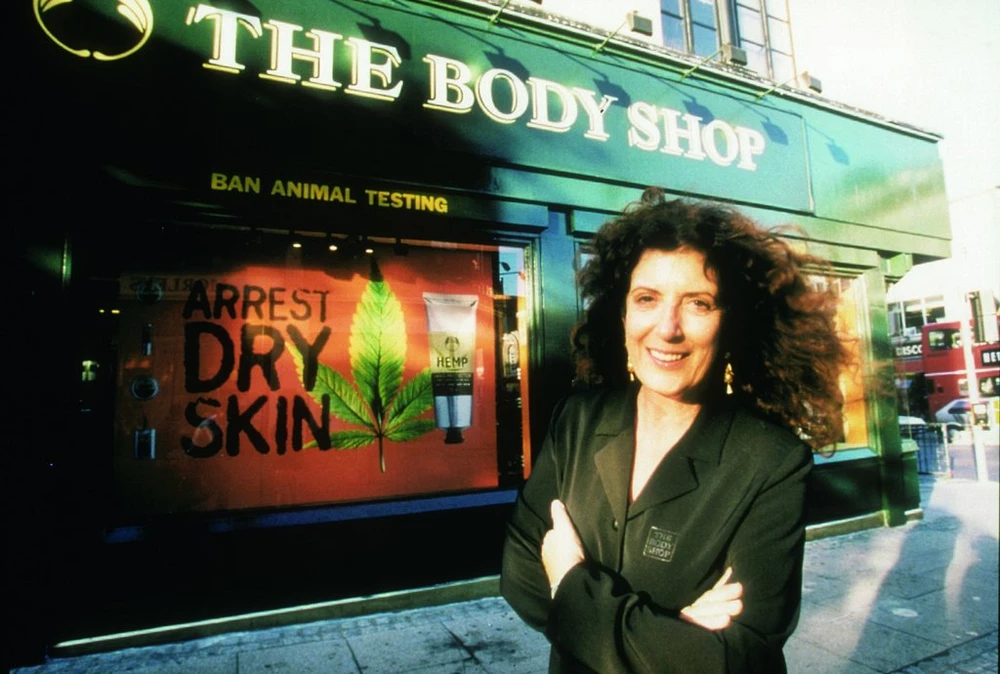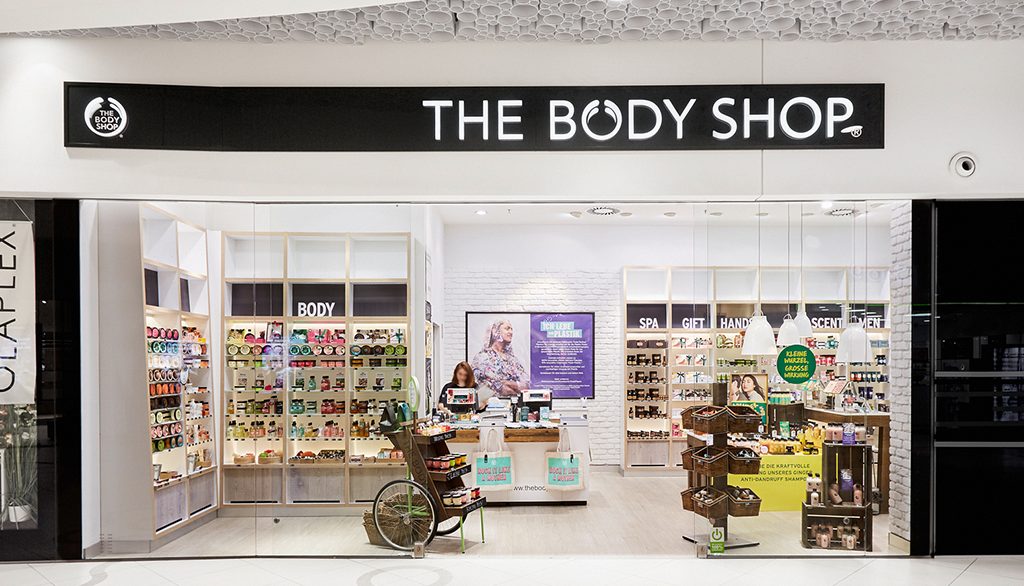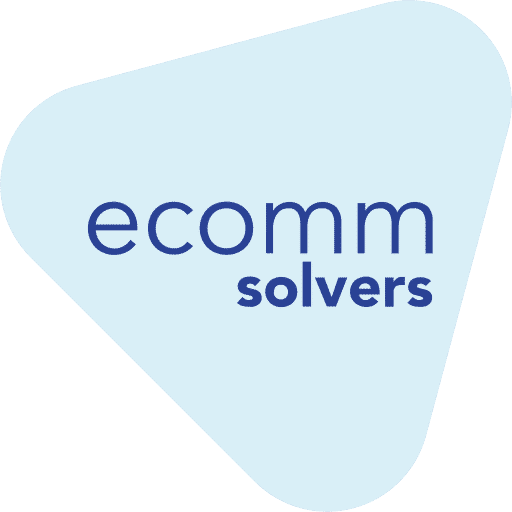Together for success: the story of award-winning online store The Body Shop
We bring you a special interview with Gábor Szűcs, Business Development Manager of The Body Shop’s Hungarian franchise partner. In the interview, you’ll gain insights into the history of the brand’s award-winning online store, the challenges and successes of the digital transition, and how The Body Shop’s domestic online presence has become a model for international franchising.
Made by Károly Guttmann
Could you briefly describe your company, what makes you unique and special?
Anita Roddick founded The Body Shop in 1976 and opened its first store in Brighton. This activist brand envisions business as a force for good and has always championed social and environmental justice to truly shape the world. In its 40+ years of existence, the brand has spread worldwide and has been present in Hungary for over ten years.
The Body Shop’s products are nature-inspired beauty products that contain ethically sourced ingredients. The company was acquired by L’Oréal in 2006 and joined the Natura family in 2017. It was acquired by Aurelius Private Equity in 2023 and in 2024 it was acquired by a consortium led by Auréa Group.

When did you enter the e-commerce market? What challenges did you face then? How was this sector different from selling in a physical space?
It goes back more than ten years, I joined the company when it had been in Hungary for two or three years. It first entered the market with a simple system. The disadvantage of that system was its integrability, the advantage was its simplicity. However, the operation did not work well above a certain volume of products.
How did you choose the Magento framework? What were your expectations when looking for a webshop development company?
When I joined the company, I was already quite familiar with Magento 1 and I saw the advantages of Magento. At that time, there were Virtuemart, Opencart, Magento on the market. Because of my personal experience and comparing the other systems with the needs of the time, I chose Magento.
Magento 1 was easily integrated with our ERP system, which facilitated automatic invoicing. Paper invoicing was a long time in the company, which was terribly time consuming.
Obviously it was important for the prospective developer to know the Magento framework, the specifics of Magento, to know the specifics of the operation, so that they could put a hosting company in the right direction. It was important to charge realistically, not charge for every 5-10 minutes. It was important not to have an admin team of 6-8-10 people who had to be paid for doing nothing. It was important to understand the task, our needs and deliver it, not go off on a tangent and make a star destroyer.

What were the key moments that made you choose Ecommsolvers?
The previous development team had increased administrative costs, our cooperation could not be profitable and this also affected the atmosphere.
The selection was obviously based on professionalism and the hourly rate. We knew the managers, what professional skills they had, and in addition we got an hourly rate that we said that our size of webshop could handle this hourly rate and then it could be profitable. By showing the operating model of your company, we could see that the administrative costs were not going to go away.

What were the most difficult and best moments in your work together?
Obviously the best moment was when this whole system was set up in four months. That was so incredible, three countries with Magento 2, ERP and CRM integration up and running. The hardest moment was that after we started our synchronous process we had an inventory problem. This was a bug in the Magento core system, it took a lot of tracing and investigating to get it fixed, but you finally fixed it. We did indeed pull the tab for the 19th, as the live launch was a week before Black Friday, but we had the system fully ready for the promotion.
Due to the experience after Black Friday, we had to prepare the replacement of our hosting partner.
What was the biggest lesson learned from working together?
While it may not have been directly evident in the course of working together, for me one of the most important lessons learned from these collaborations is that if I, as a client, have a clear understanding of my business needs and can articulate them clearly, then the hourly estimate you provide will be reliable. That way you can stick to the schedule and know exactly what needs to be delivered, and the client is clear on the commitments. I think that’s why we were able to successfully complete such a big project in 4-5 months.
What are the criteria by which you judge the success and effectiveness of your webshop? How have you performed in the last years based on these indicators? Do you have a subjective set of criteria?
In order to achieve the sales target, it is important to keep marketing spend within a certain percentage of turnover. If this is not met, then possible causes such as technical problems, inappropriate marketing, PPC campaigns, pricing, webshop ergonomics, offers or cart abandonment rates need to be investigated. The sales metric is made up of many small numbers such as average basket value, number of transactions, conversion rate and number of visitors, which are further broken down into weeks and campaigns.
In recent years, the webshop’s turnover has increased significantly, especially after Covid, and it is now stable. The Power BI system allows us to track performance on a dashboard, and the introduction of bi-weekly sprints allows us to plan and quickly manage new demands. Integrations with ERP and CRM are also stable and collaboration with the hosting partner is seamless.
There’s never been a critical point in the cooperation, if there are critical errors, if there’s a cart or checkout issue, you deal with it immediately, you respond immediately. From experience, the system works well and communication between the teams is efficient. Future developments and needs can be planned well within the existing framework.

Given your experience now, what would you do differently?
Based on the Black Friday experience, the webshop’s traffic tripled with the introduction of the new Magento 2 system, which recovered the development costs already in the first weekend. Since then, Black Friday promotions have been running for a week to allow time to resolve any technical issues. Don’t wait until perfection before launching, but get to work and improve as you go. When collaborating, always have clear expectations and deadlines, which makes it easier to work together.
There has never been a critical point in our collaboration, and realistic hourly estimates and realistic time calculations contribute to a smooth workflow. Availability and quick responses are also important, especially in the event of critical errors. Keeping hourly rates at a reasonable level and a stable system ensures the success of long-term cooperation.
I like the fact that you are available, even on the phone, at any time, for 5-10 minutes no charge. Your hourly estimates are realistic, and your hourly billing is realistic.
Is there anything you would highlight from the last period?
During our time at Covid, we took part in an international competition for the most digitally advanced and growing markets. In the Body Shop franchise world, we have always been seen as a best practice, especially after our successful implementation of Magento 2 in three countries with ERP and CRM integration. This is why we received the Digital Award as the most evolving company and one of the most digitally advanced markets. We were also among the first to launch the new Rosalind Design suite, which also contributed to our success.
During the competition, many franchise markets asked us how we did it and who we worked with. Although the centre tried to centralise trusted partners, in the end all franchise markets were looking for local specialists. Nevertheless, we are proud to have been one of the first to introduce the new design and to have excelled in digital.
Gábor Szűcs
Business Development Manager
